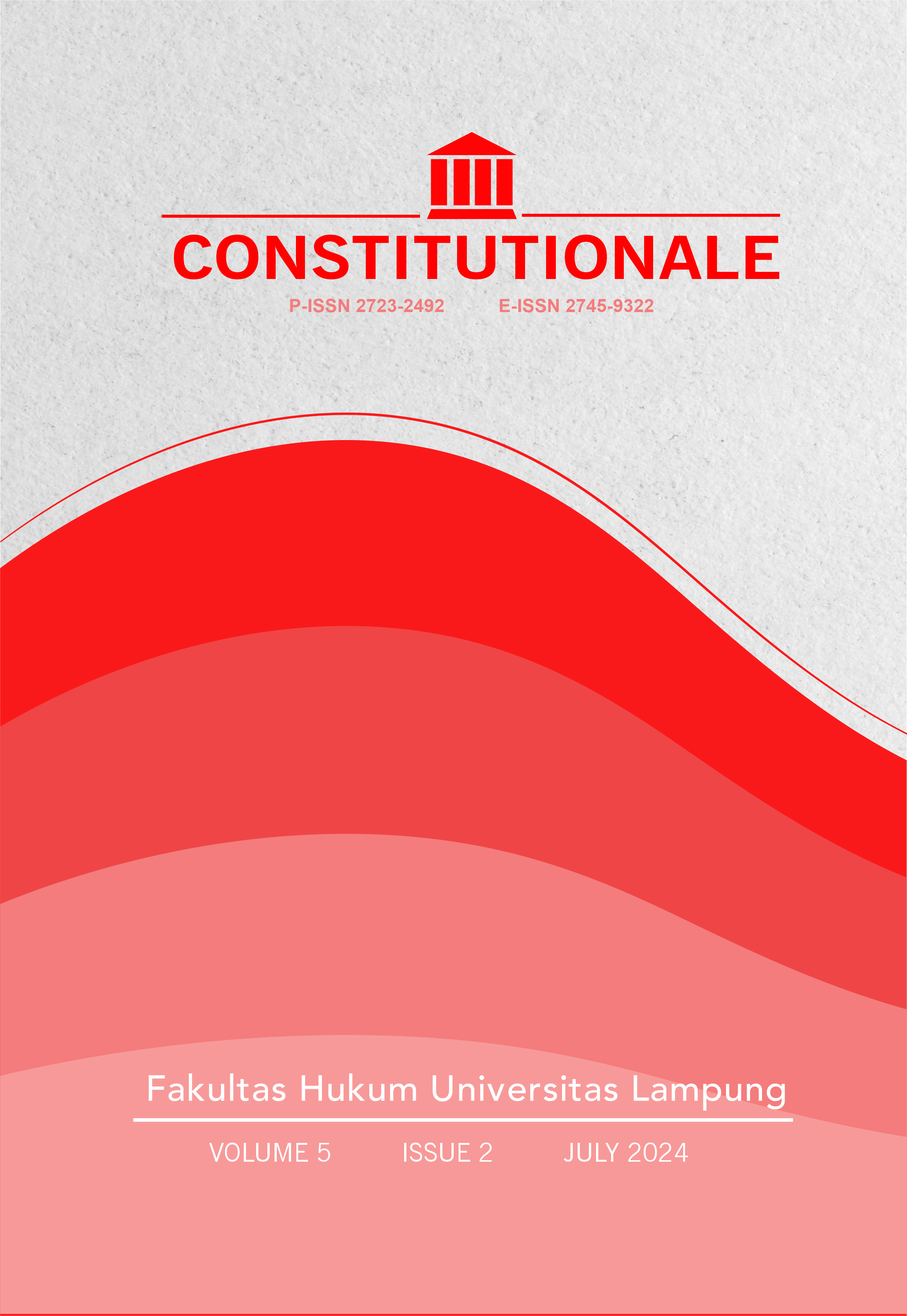Artikel (64)
This research article provides a critical analysis of Constitutional Court Decision No. 90/PUU-XXI/2023, focusing on the serious ethical violations committed by judges during the decision-making process. The study is significant due to the impact these violations have had on the legal field. Employi...
Constitutionale; Vol. 5 No. 1 (2024); 53-66 | 2024
An emergency situation disrupts the normal functioning of a country, rendering standard laws and procedures ineffective. In such cases, extraordinary measures are required, and the President, as the executive authority, is granted significant powers to address the emergency. The House of Representat...
Constitutionale; Vol. 5 No. 1 (2024); 67-84 | 2024
As regional autonomy through decentralization becomes increasingly prevalent worldwide, it has also been enshrined as a constitutional principle in Indonesia. This approach was adopted following constitutional amendments aimed at shifting authority from the national to the local level, with the inte...
Constitutionale; Vol. 5 No. 1 (2024); 39-52 | 2024
The use of educational institutions for campaign activities is prohibited. In the application reviewed in Constitutional Court Decision Number 65/PUU-XXI/2023, it was argued that the Explanation of Article 280, paragraph (1), letter h could lead to constitutional harm for plaintiffs, both as voters ...
Constitutionale; Vol. 5 No. 1 (2024); 25-38 | 2024
Engaging first-time voters in the 2024 General Election is vital for a healthy democracy. The General Election Commission of Yogyakarta City is concerned that many new voters lack understanding of democratic processes, which might lead to lower turnout. To address this, the Commission is running edu...
Constitutionale; Vol. 5 No. 1 (2024); 13-24 | 2024
This paper critically examines constitutional provisions that facilitate apartheid systems, focusing on how these provisions enable the establishment and perpetuation of segregation and discrimination. Despite global condemnation of apartheid, similar traits persist in various jurisdictions today, n...
Constitutionale; Vol. 5 No. 1 (2024); 1-12 | 2024
Democratic States generally elect a National Leadership to lead a State through the General Election process. In Indonesia itself, post-reform, to determine the position of replacing the National Leadership using the General Election system as stipulated in the constitution with the principles of di...
Constitutionale; Vol. 4 No. 2 (2023); 159-172 | 2023
The growth of state auxiliary organs increases the possibility of conflicting authority. Regrettably, the Indonesian Constitutional Court can only settle authority disputes between constitutional state organs. It is based on Article 24C 1945 Constitution jo. Article 61 Constitutional Court Act 2003 ...
Constitutionale; Vol. 4 No. 2 (2023); 137-146 | 2023
Persons with disabilities have political rights. The right to vote and the right to be elected in general elections. This article examines the political rights of persons with disabilities to be elected in general elections. This is important because the representation of persons with disabilities i...
Constitutionale; Vol. 4 No. 2 (2023); 147-158 | 2023
Legal protection of human rights (HAM) is sought to avoid discriminatory acts, especially the midwifery sector as the fulfillment of basic rights inherent and protected by the constitution as stipulated in article 27 paragraph (2) of the 1945 Constitution of the Republic of Indonesia which states th...
Constitutionale; Vol. 4 No. 2 (2023); 127-136 | 2023


